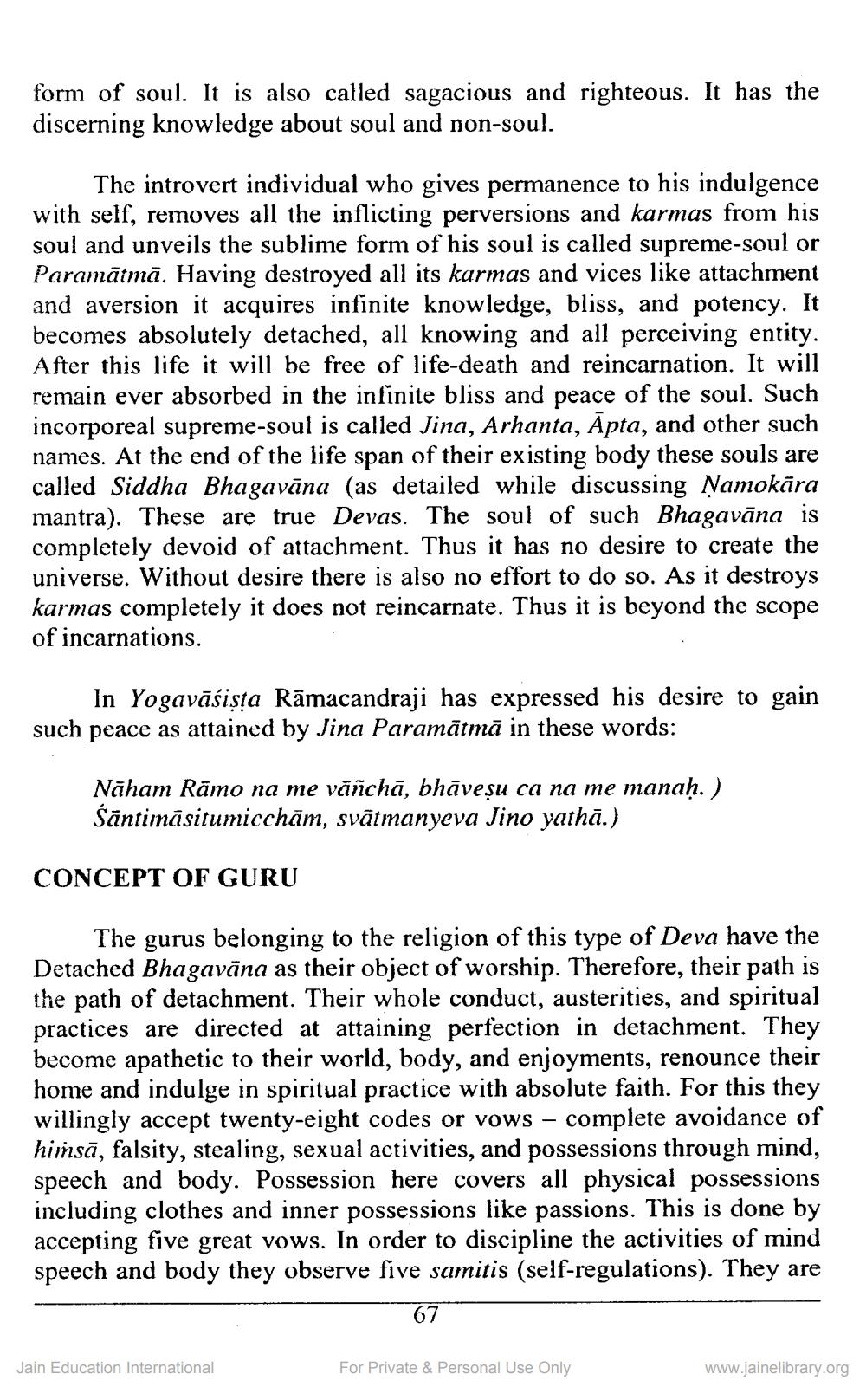________________
form of soul. It is also called sagacious and righteous. It has the discerning knowledge about soul and non-soul.
The introvert individual who gives permanence to his indulgence with self, removes all the inflicting perversions and karmas from his soul and unveils the sublime form of his soul is called supreme-soul or Paramātmā. Having destroyed all its karmas and vices like attachment and aversion it acquires infinite knowledge, bliss, and potency. It becomes absolutely detached, all knowing and all perceiving entity. After this life it will be free of life-death and reincarnation. It will remain ever absorbed in the infinite bliss and peace of the soul. Such incorporeal supreme-soul is called Jina, Arhanta, Apta, and other such names. At the end of the life span of their existing body these souls are called Siddha Bhagavāna (as detailed while discussing Namokāra mantra). These are true Devas. The soul of such Bhagavāna is completely devoid of attachment. Thus it has no desire to create the universe. Without desire there is also no effort to do so. As it destroys karmas completely it does not reincarnate. Thus it is beyond the scope of incarnations.
In Yogavāsiṣṭa Rāmacandraji has expressed his desire to gain such peace as attained by Jina Paramātmā in these words:
Nāham Rāmo na me vāñchā, bhāveṣu ca na me manaḥ. ) Sāntimāsitumicchām, svātmanyeva Jino yathā.)
CONCEPT OF GURU
The gurus belonging to the religion of this type of Deva have the Detached Bhagavāna as their object of worship. Therefore, their path is the path of detachment. Their whole conduct, austerities, and spiritual practices are directed at attaining perfection in detachment. They become apathetic to their world, body, and enjoyments, renounce their home and indulge in spiritual practice with absolute faith. For this they willingly accept twenty-eight codes or vows - complete avoidance of himsă, falsity, stealing, sexual activities, and possessions through mind, speech and body. Possession here covers all physical possessions including clothes and inner possessions like passions. This is done by accepting five great vows. In order to discipline the activities of mind speech and body they observe five samitis (self-regulations). They are
Jain Education International
For Private & Personal Use Only
www.jainelibrary.org




